Reference Desk Schedules
Spring 2016 Librarians regular day reference desk schedule
Go back to the Library's homepage
Use the Catalog to find books, videos, e-books, and other media
Search for online journal and newspaper articles, e-books, and streaming video
Guides for finding and citing sources in many different subject areas
Learn about the Library's spaces and services
Spring 2016 Librarians regular day reference desk schedule
Click on the tabs below to find websites, books and articles on your topics.
The websites are available from on and off the COD campus. To access the databases, you must be on campus.
Architectural Chicago - The rise of skyscrapers
Al Capone
Great Chicago Fire
Chicago Crime
Chicago: Sanctuary City
Development of Education institutions
Chicago's World's Fair - Columbian Exposition
Evolution of Graffiti
Immigration to Chicago
Cold War
Librarian Room Assignments -
Ken Orenic -Room 2024 (Room available 8:30-12:30) Lunch at 12:30 – go to 2032 at 1:00pm.
Jen McIntosh -Room 2025 (Room available 8:30-2:30) Lunch at 11:00 – return to 2025 at 11:30
Dan Blewett -Room 2030 (Room available 8:30-2:30) Lunch at 12:00 Return to room at 12:30
Jason Ertz -Room 3152 3152 (Room available 8:30- 11:30) and 1:00-2:30) Lunch at 11:30, go to 2032 at 12:00
Architectural Chicago - Rise of skyscrapers
Al Capone
Great Chicago Fire
Chicago Crime
Chicago: Sanctuary City
Development of Education institutions
Chicago's World's Fair - Columbian Exposition
Evolution of Graffiti
Immigration to Chicago
Cold War
Multidisciplinary database covering a wide range of academic areas.
Multidisciplinary database covering a wide range of academic areas.
Excellent source for credible scholarly, peer-reviewed articles. Articles in database were published between the early 1700s and between 1-5 years ago.
Project MUSE offers full-text current and archival articles from 500+ scholarly journals from major university presses covering literature and criticism, history, performing arts, cultural studies, education, philosophy, political science, gender studies, and more. Updated continually.
Use the COD Library's book catalog to find books & videos. Click on the "keyword" tab to search using multiple search terms and limit your results by material type (book, video), date, or language.
This is an introduction to using the Library website and using the Library catalog. You'll also learn how to get a library card and a LinkedIn Learning account. You will do a brief lab activity that will be submitted to your instructor via BlackBoard This exercise should take no more than one hour to complete.
Right click and download the lab worksheet (also at the bottom of this page). SAVE it to your computer before you start filling it in.
In this activity, the student will:
How to complete this activity:
Activity #1
Get a library card online. Go to: https://www.codlrc.org/circulation/cards
Review this page then click on "Library Card Request Form"
Here's a printable guide to signing up for a library card.
Sign up for a LinkedIn Learning account. Go to http://www.codlrc.org/linkedinlearning
Use your dupage.edu email address to register.
Activity #2 Review of the Horticulture Research Guide
This is a quickie review of the Horticulture Research Guide: https://www.youtube.com/watch?v=R0CuLEyO07Q
Activity #3 Using the Library Catalog
You will be using the library catalog. You'll find a book about Foliage Plants as part of your lab activity. You will write down the subject headings and copy the link to the book record for your lab assignment. Here's a quick video on how to find your book in the catalog:
https://www.screencast.com/t/Ws4fsAYDwb
Please feel free to contact the Librarian if you have questions!
___________________________________________________________________________________________________________________________________________
LIBRARY CATALOG: Search for materials in the COD library or in libraries worldwide.
Outline of the Library of Congress Classification System (what COD uses to arrange its books on the shelves)
I-SHARE (formerly Illinet Online): Get books from over 80 Illinois academic libraries
Interlibrary Loan, to get books and journal articles from other libraries around the country.
___________________________________________________________________________________________________________________________________________
You must have a valid College of DuPage library card to access the electronic indexes and databases from off-campus.
Anthrosource. This provides citations and texts for articles in the professional journals and newsletters of the American Anthropological Association. Look at the top right side for the journal citation search feature. Those who are members of the AAA can log in and retrieve the full-text of the articles.
Academic OneFile (formerly Expanded Academic Index ASAP). An index to over 2500 magazines and journals covering a variety of topic areas including anthropology. This database provides references, abstracts, and many times the full-text of articles. A COD library card is required for off-campus use.
Academic Search Premier/Complete. [EBSCOhost]1984 to present; 1990 to present- full text). Abstracts from nearly 3000 journals and full text for 1250 journals including general reference, education, social sciences, humanities, general science, multi-cultural studies, library and information science. A COD library card is required for off-campus use.
National Newspapers database Search the Chicago Tribune, Christian Science Monitor, Los Angeles Times, New York Times, Wall Street Journal and the Washington Post.
PsycInfo This database contains more than one million citations and summaries of journal articles, book chapters, books, dissertations and technical reports, all in the field of psychology. It also includes information about the psychological aspects of related disciplines such as medicine, psychiatry, nursing, sociology, education, pharmacology, physiology, linguistics, anthropology, business and law. Journal coverage, which spans from 1887 to present, includes international material selected from more than 1,700 periodicals in over 35 languages.
SocIndex with Full-Text articles. The database features more than 1,700,000 records with subject headings from a 15,600 term sociological thesaurus designed by subject experts and expert lexicographers. This product also contains informative abstracts for more than 740 "core" coverage journals dating as far back as 1895. In addition, this database provides data mined from more than 540 "priority" coverage journals as well as from over 2,800 "selective" coverage journals. Further, extensive indexing for books/monographs, conference papers, and other content sources is included.
OTHER ONLINE JOURNAL ARTICLE RESOURCES
More COD Library journal and newspaper article databases.
Does the C.O.D. Library own the journal that I need?
Explanation of the Difference between Journals and Magazines.
How to Read a Research Study Article.
___________________________________________________________________________________________________________________________________________
Is your research topic too big to cover in a short paper? Is your topic so specific that sources will be hard to find?
Before you even begin your research, start the process with reference sources-- in the Library's Reference Section or online in our databases. Reference books, like subject encyclopedias, can give you a head start and make your research easier in the long run. Use reference sources to:
Encyclopaedia Britannica
Encyclopedia of Afterlife Beliefs and Phenomena. Reference BF 1311 .F 8 L 48 1994
Encyclopedia of Allegorical Literature. Reference PN 56 .A 5 L 44 1996
Encyclopedia of Death and the Human Experience. Reference HQ 1073 .E 544 2009
Folklore : An Encyclopedia of Beliefs, Customs, Tales, Music, and Art. Reference GR 35 .F 63 1997
Horror Literature through History : An Encyclopedia of the Stories that Speak to our Deepest Fears.
Macmillan Encyclopedia of Death and Dying. Reference HQ 1073 .M 33 2003
The Ultimate Encyclopedia of Mythical Creatures. General GR 825 .D 463 2006
Folklore background reading
Horror as a literary and cultural theme background reading
Monsters background reading
Monstrous Races background reading
Myths background reading
Superstitions background reading
The Undead background reading
Voodoo background reading
___________________________________________________________________________________________________________________________________________
List of COD Library Books on Zombies.
List of COD Library Videos on Zombies
List of COD Library Books on Voodoo
List of COD Library Videos on Voodoo
Encyclopedia of the Zombie : The Walking Dead in Popular Culture and Myth. (2014)
The Voodoo Encyclopedia : Magic, Ritual, and Religion. (2015)
The Zombie Book : The Encyclopedia of the Living Dead. Reference GR 581 .R 43 2014
Undead word origins
Virus background reading
Vodou background reading
Zombie background reading
Zombie Movies background reading
Zombie Preparedness from the U.S. Center for Disease Control
Zombie word origin
The Walking Dead TV series
The Walking Dead Psychology : Psych of the Living Dead.
COD Library Videos list
___________________________________________________________________________________________________________________________________________
List of COD Books on Vampires.
List of COD Videos on Vampires.
List of COD Books on Dracula.
List of COD Videos on Dracula.
The Encyclopedia of Vampire Mythology. Reference GR 830 .V 3 B 34 2010
The Vampire Book: The Encyclopedia of the Undead. Reference BF 1556 .M 46 2011
The Vampire Encyclopedia. Reference GR 830 .V 3 B 86 1993
The Vampire Gallery: A Who's Who of the Undead. Reference GR 830 .V 3 M 46 1998
Blood background reading
Dracula background reading
Transylvania background reading
Vampire word origin
Vampires introductory reading
Vampires background reading no.1
Vampires background reading no.2
Vampires and Women background reading
Vampirism background reading
___________________________________________________________________________________________________________________________________________
List of COD Books on Werewolves.
List of COD Videos on Werewolves.
The Werewolf Book: The Encyclopedia of Shape-Shifting Beings. (2012)
Lycanthropy background reading
Shape Shifting background reading
Werewolf word origins
Werewolves background reading
Werewolves in Folklore background reading
Wolves background reading
___________________________________________________________________________________________________________________________________________

This exhibit recognizes faculty and staff who have enriched the COD community through their creativity. It represents works produced in the last six years and submitted to the Library for the 2015 exhibit by College of DuPage faculty and staff. In some cases, works have been listed but not exhibited. The listings for contributors do not indicate their productivity during this period, as they were asked to submit only those works that we felt we could exhibit. We have made every effort to describe works accurately and regret any errors that may remain. We wish to express our great appreciation to all participants. It is always a rewarding activity for the Library. - Ellen Sutton, Dean of Learning Resources
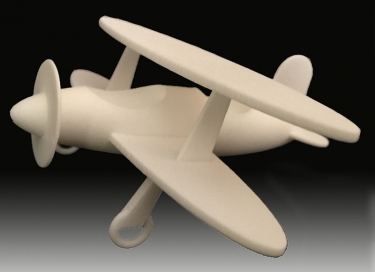

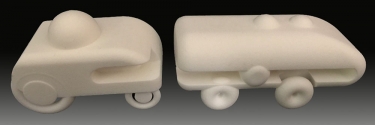

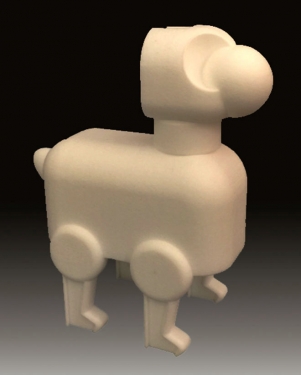

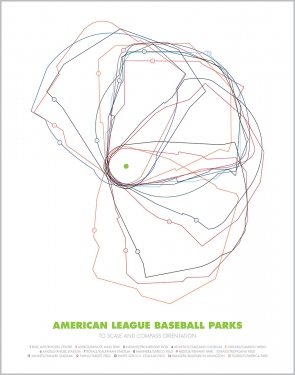
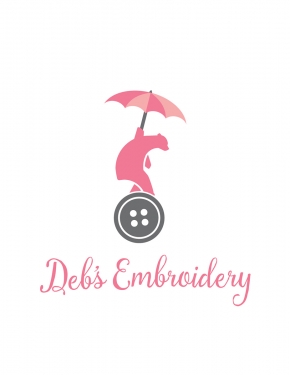
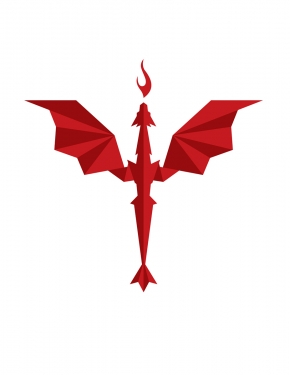
Hunter, Seth
No. 1: To Make a Prairie
No. 2: A Bee his Burnished Carriage
No. 3: Bee! I'm Expecting You!
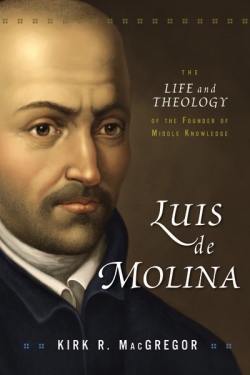
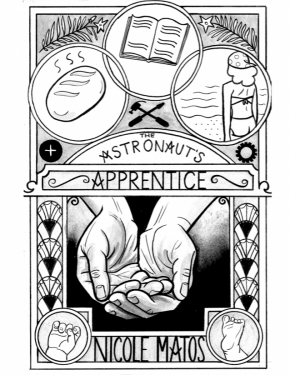
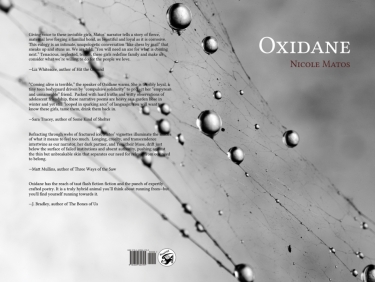




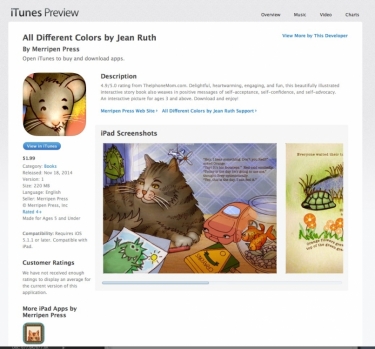
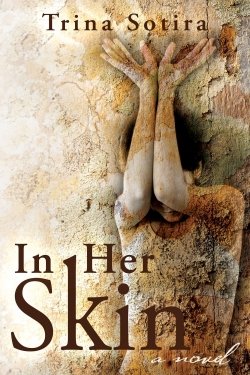
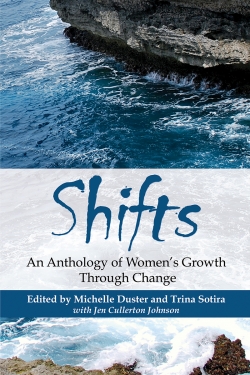
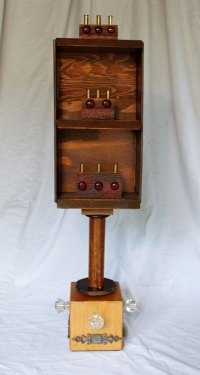

Think the days of people trying to limit what you can read are over?
Think again. Each year, the American Library Association's Office for Intellectual Freedom puts together a list of the 10 most challenged books in this country. A challenge is defined as a request that a library remove a book from its shelves. In 2014 alone, the Office of Intellectual Freedom reports 311 books were challenged.
FUN HOME (A graphic novel)
Curious to see for yourself? Read the book.
Censorship: A World Encyclopedia. Reference Z 657 .C 468 2001
Encyclopedia of Literature and Politics : Censorship, Revolution, and Writing. Reference PN 51 .E 63 2005

Lynda.com is being transitioned to LinkedIn Learning. The transition will occur on July 29 and July 30. Current Lynda.com users will receive information via email. Please visit this page to learn more: https://www.codlrc.org/LIL
Welcome to the Billy Strayhorn Resource Guide complied by the College of DuPage Library.
This guide includes resources on Billy Strayhorn, sound recordings by Strayhorn and others, including Duke Ellington, and the African American Great Migration and civil rights experiences.
Resources include books within the Library's collection, audio CDs, films, and websites.
Click on the tabs below to find books & videos, websites and sound recordings.
We hope you enjoy these resources!
Great Migration / African American Experience
Compositions written and performed by Billy Strayhorn, and compositions written by Billy Strayhorn and performed others are available in the COD Library. Some titles are available on CD and others are available via online streaming. You'll need your current COD library card to check out CDs or access the streaming titles from off campus. To access streaming titles, click on the "View Online" button.
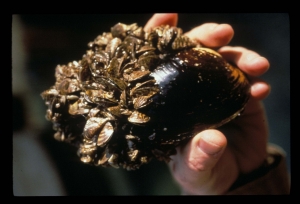
Welcome! Click on a tab below to find books, articles, and websites for use in this course.
You'll need a College of DuPage Library card in order to use most of the resources below from off campus. If your card is not working, it may need to be reactivated.
Questions? Feel free to use my contact info to the right, stop by the Reference Desk, or contact us by email or chat
Your professor has listed several topics for you to choose from. To narrow a topic, try using Google Scholar to search for specific articles. Want to use Google Scholar to help identify what you have access to in our library? Watch this short tutorial on how to do that!
You can also search our catalog for print subscriptions we own.
Scientific research can be best found in academic databases and journals. Here are the best ways to look for information:
Science is one of our online databases that you can search from on or off-campus.
The best ways to search Nature are:
Scientific American is a respected scientific magazine and can be found in full text through Academic Search Complete. Need an image or table from your article? The journal is in full-text in JSTOR except for the current 5 years, and we retain two years of the most current issues in our print collection. . Remember that if you find an article in Scientific American that does not reference another scholarly article, you'll want to also search Science or Nature for info on that topic (links above.)
Having trouble reading your research article? Check out my Reading Research Articles link above.
While you're doing Google searches to either narrow your topic or in order to dig up more information on certain subject, you want to be careful to decide if the information you find is trustworthy.
When it comes to science, nearly everyone has opinions: should we be labeling genetically modified food for consumer's awareness? What will fracking do for our economy or our groundwater supply? Your job is to evaluate the information you can find through Google and Bing to find the good websites--those written by authors you can trust, with good and up-to-date information.
Authorship: Who created this website? What is their background on the topic? Are they trustworthy?
Bias: Why was the website created? What point of view does the author have? Does that limit the facts they present or how the facts are presented?
Date: How old is the information that is presented? Is it still accurate?
Questions? Check out the COD Library's guide to evaluating websites.
Confused about when you would need to cite, or where the line is drawn between paraphrasing and patchwriting? Sometimes students believe that changing one or two words from a quotation means that quotation marks are not necessary. Good paraphrasing is transformative: the writer explains the main ideas of another author in his or her own words. Paraphrasing also requires a citation.
Take a moment to look at the following sources to see definitions and good and bad examples of student writing.
Find directions about how to cite your sources in APA Style on the library citation guide.
You can also always check out the Purdue OWL website, which has APA citation guides and even a sample APA paper.
Google Scholar will also create citations.
Finally, you are welcome to use NoodleBib if you'd like to use a program to create and organize your citations. You must "Create a New Folder" when you use NoodleBIB for the first time. Click on "I am citing a(n):," choose the type of item you are citing, and then fill in the online form. Your bibliography will be formatted for you.
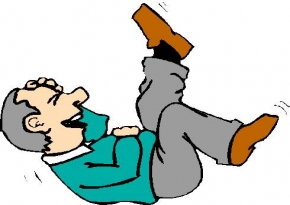 Countless health research studies and documented medical cases show the negative effects of stress on health and wellbeing. Stressful situations in our workplaces are unavoidable. If we cannot control or stop the causes of stress, we can find positive, constructive methods to maintain our health and wellbeing. Humor relieves stress and helps us be positive, productive and effective.
Countless health research studies and documented medical cases show the negative effects of stress on health and wellbeing. Stressful situations in our workplaces are unavoidable. If we cannot control or stop the causes of stress, we can find positive, constructive methods to maintain our health and wellbeing. Humor relieves stress and helps us be positive, productive and effective.
Join this workshop to learn how humor can reduce stress and create a more positive work environment!
Stress is caused by any event or occurrence (ongoing or isolated) that threatens an individual's coping strategies or resources.
Common physical manifestations of stress: 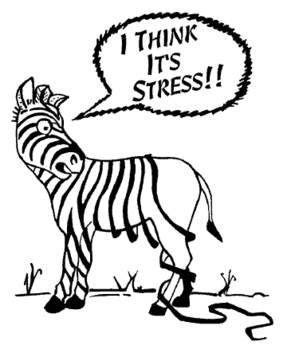
.
Common psychological manifestations of stress:

A good "sense" of humor and laughter can trigger both short and long-term health benefits, increasing overall wellbeing. 
“With the fearful strain that is on me night and day,
if I did not laugh, I should die.” ~ Abraham Lincoln, 1865
Immediate Benefits of Humor and Laughter:
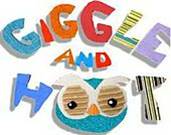
Long-Term Benefits of Humor and Laughter
"Laugh, and the world laughs with you; weep, and you weep alone." ~Ella Wheeler Wilcox

The best medicine?. (2015). Mayo Clinic Health Letter, 33(7), 7. Retrieved from Academic Search Complete database.
Cann, A., & Kuiper, N. A. (2014). Research on the role of humor in well-being and health. Europe's Journal Of Psychology, 10(3), 412-428. doi:10.5964/ejop.v10i3.818
Frey, R. J., & Davidson, T. (2015). Stress. In J. L. Longe (Ed.), Gale encyclopedia of medicine (5th ed., Vol. 7, pp. 4822-4825). Retrieved from GVRL Database.
Hartwell-Walker, M. (2016). Laughter Is Serious Business!. Psych Central. Retrieved on February 6, 2018, from https://psychcentral.com/lib/laughter-is-serious-business/
Romero, E.J., & Cruthirds, K.W. (2006). The use of humor in the workplace. The Academy of Management Perspectives 20(2), 58-69. retrieved from http://www.emotionsnet.org/wp-content/uploads/2011/04/RomeroCruthirds2006.pdf
Shellenbarger, S. (2013, August 14). Comedic gold or clunker? Secrets of effective office humor. Wall Street Journal. Retrieved from Proquest database.
Stress relief from laughter? It's no joke. (2013, July 13). Mayo Clinic. Retrieved September 13, 2015, from http://www.mayoclinic.org/healthy-lifestyle/stress-management/in-depth/stress-relief/art-20044456
Thompson, K. (2013). Funny Business at Work. Phi Kappa Phi Forum, 93(3), 25. Retrieved from Academic Search Complete database.